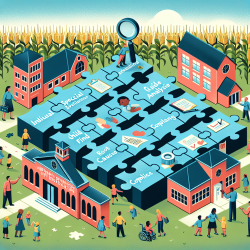In the realm of speech therapy, understanding the nuances of listening effort is crucial. The research paper, "Use of a Dual-Task Paradigm to Measure Listening Effort," by Penny Anderson Gosselin and Jean-Pierre Gagné, sheds light on the cognitive resources required to comprehend speech, especially as individuals age. This blog explores how practitioners can leverage these findings to enhance their therapy sessions.
The Importance of Measuring Listening Effort
Listening effort refers to the attention and cognitive resources needed to understand speech. Traditional audiological assessments often focus on hearing ability, but as this research highlights, listening involves more than just auditory perception—it requires significant cognitive effort, particularly in challenging environments.
Implementing Dual-Task Paradigms in Therapy
Dual-task paradigms involve performing two tasks simultaneously, such as listening to speech while responding to a secondary task. This method helps quantify the listening effort required and provides a more comprehensive understanding of a client's auditory processing capabilities. Here's how you can incorporate this into your practice:
- Assessing Baseline Listening Effort: Begin by evaluating your client's listening effort in a controlled environment. Use a dual-task paradigm where the primary task is a speech recognition activity, and the secondary task could be a simple reaction time test.
- Customized Therapy Plans: Use the data from the dual-task assessments to tailor therapy sessions. Focus on strategies that reduce cognitive load and improve listening comprehension, such as auditory training exercises and cognitive-behavioral techniques.
- Monitoring Progress: Regularly reassess listening effort using the dual-task paradigm to track improvements and adjust therapy plans accordingly. This objective measure can highlight areas of progress and identify ongoing challenges.
Encouraging Further Research
While the dual-task paradigm offers valuable insights, there is still much to learn about listening effort and its implications for therapy. Encourage your colleagues to delve deeper into this area of research. Collaborative efforts can lead to innovative approaches and improved outcomes for clients.
To read the original research paper, please follow this link: Use of a Dual-Task Paradigm to Measure Listening Effort.










